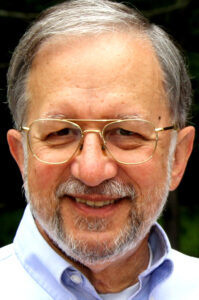GUEST COLUMN
Will COVID Lead Us
To Justice, Peace?
By RANDY VELEZ • Special to www.AllOTSEGO.com
One of the most perplexing elements in our relationship with God has to do with why bad things happen to us. One theory is that God is punishing us for our sinfulness. Another is that God is testing us to determine our worthiness for eternal life with him. Finally, some believe that this is the beginning of the end as described in the Book of Revelation.

But, if we subscribe to any of these theories, we must reconcile it with our belief in God’s complete goodness. How could God will or even allow bad things to happen to those whom God claims to love as his children? It seems antithetical to the concept of God as “Our Father”.
We experience the slaughter of innocent people in terror attacks, home invasions, traffic stops, work-place violence and even the mass killing of our children in schools. We experience the widening economic disparity between the rich and everyone else.
We see the steady decline in the availability of quality education, housing and healthcare. We see the continual erosion of basic human services for the poor, the disabled and the elderly.
We see such events and the vile hatred that drives them, occurring unabated and with incredible frequency and we fool ourselves into believing that this is simply the way things are. “It is what it is” and there is nothing we can do about it.
Humanity has survived wars, droughts, floods, wildfires, earthquakes, plagues and pandemics of biblical proportions. We tend to consider them as isolated events in history, having an impact only in the time and place of their occurrence.
However, if we consider them as parts of a broader, divine plan, each may have greater significance.
Virtually all religions are predicated on a core set of values that are usually encapsulated in a primary document. Every major religion has a written source that incorporates its theology, history, traditions, rituals and moral code.
For Jews, it is the Torah. For Christians, it is the New Testament. For Muslims, it is the Qur’an. It is from books such as these and from the studies of learned scholars that the faithful draw the knowledge and wisdom to direct how they conduct themselves in all aspects of life.
In this context, major disasters may be seen as opportunities for us to fulfill our part in a divine plan. The essence of the great commandment, to love God and our neighbor, binds us to each other in our quest for justice and peace.
Nevertheless, throughout history it is clear that for the most part, we have failed to produce permanent change for the better in times of greatest need. It always seems that we can rationalize that it is not our problem and so, we walk away.
COVID-19 has changed that view. This virus is highly contagious and deadly. While it is completely indiscriminate in whom it infects, the consequences are worse for the poor. It has spread worldwide and has brought the world economy to its knees.
It is as though all of humanity has been put into the crucible at once. No one can walk away because no one is immune to this scourge or exempt from its broader consequences.
In order to overcome the grave and diverse consequences of the pandemic, we have had to adopt new paradigms of personal and social relationships.
We are discovering that our survival depends on our turning to others for assistance and supporting others in their need. Every day we witness and engage in selfless and sometimes courageous acts of aid to others.
This is a consequence of our sharing in the crisis rather than simply observing it as we have others in the past.
While the end seems far away, there will come a time when we will manage our way into the future with COVID-19. The crisis will pass but the virus will remain, and hopefully the experience will have changed us for the better.
Our heightened awareness of the pervasive social and economic injustice, coupled with our new understanding of “who is my neighbor,” may bring us finally to embrace our part in the plan and bring about lasting justice and peace for all.

